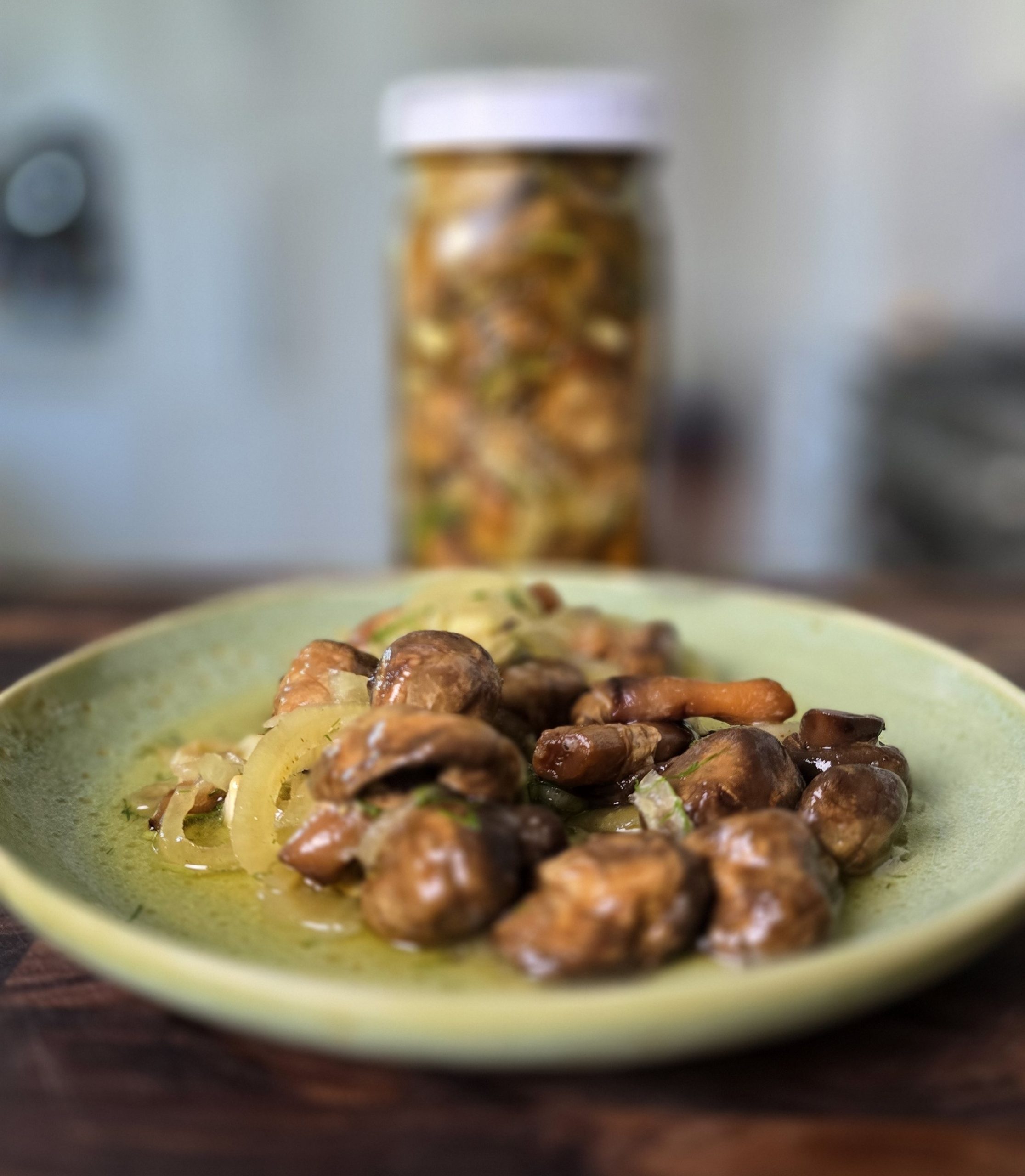Fermented Mushrooms: The Forgotten Eastern European Delicacy You’ve Never Truly Tasted
In the heart of Eastern Europe, long before convenience foods and white vinegar took over the pantry, there was a humble, deeply flavorful dish that graced nearly every celebration table: fermented mushrooms. These were not the overly tangy, puckering vinegar-soaked mushrooms you find on grocery store shelves today. No — this was a living, probiotic-rich preparation, handcrafted by babushkas and grandmothers, passed down through generations with care, intuition, and salt.
Growing up in a Ukrainian household, fermented foods were more than just sides — they were medicine, ritual, and tradition. But somewhere along the way, the true fermented mushroom — the kind that sits in its own salty brine, releases earthy juices, and transforms into a meaty, umami-packed delicacy — got lost. Replaced by shortcuts. Forgotten.
Most people today think of pickled mushrooms and picture slippery button caps drenched in white vinegar, sharp enough to strip paint. But that’s not what we grew up with. Our version is naturally fermented — slow, wild, and soul-nourishing. It’s a recipe that captures the forest in a jar. Earthy, briny, aromatic with dill, garlic, and onion… a cold plate that hits you with flavor, texture, and nostalgia in every bite.
This dish was once a staple at Easter, weddings, and Sunday feasts. It was scooped onto small plates, eaten alongside rye bread and potatoes, or offered to guests with shots of vodka and warm toasts. It’s the kind of dish that tells stories.
And now, it’s time to bring it back.
This is my version of the old-school fermented mushroom recipe — with a clean two-step fermentation method. No vinegar, no preservatives, and no shortcuts. Just salt, mushrooms, garlic, herbs, and time. It’s not just a side dish — it’s a tribute to our roots, and a reminder that flavor and tradition don’t need to be rushed.
Let’s make fermented mushrooms the star of the table again.

Fermented Mushrooms: The Forgotten Eastern European Delicacy You’ve Never Truly Tasted
Ingredients
- 1-2 lbs Mushrooms
- Natural sea salt (~0.5 tsp per layer)
- Optional: bay leaves, grape leaves, celery leaves
- Fermented mushrooms (from Step 1, drained)
- 1 small onion, thinly sliced
- 3-4 cloves white onion, thinly sliced
- 3-4 tbsp Fresh dill chopped
- 2-3 tbsp olive oil
- Optional: splash of filtered water to reduce saltiness
Method
- Clean Mushrooms: Rinse mushrooms well and trim stems if needed.

- Layering: Place a bay leaf or grape leaf at the bottom (optional).

- Add Mushrooms in Layers: After each layer, sprinkle ~1/2 tsp salt.

- Press Down: Gently press mushrooms without breaking them.

- Weight + Cover: Place fermentation weight on top. Cover with lid or cloth.

- Ferment: Leave at room temperature for 3–5 days (cooler = longer).

- Tip: Mushrooms will release a lot of liquid and should be fully submerged in their own brine by day 2. If not, press them again or add a tiny splash of filtered water.

- Drain Mushrooms: Remove from brine and gently press out excess liquid.

- Pack in Layers: In a clean jar, layer mushrooms, onion, garlic, and dill.

- Top Off: Add 2–3 tbsp olive oil + splash of filtered water if needed.

- Fridge Cure: Let sit in fridge 12–24 hours for full flavor.

- Taste & Adjust: If too salty, add filtered water and wait another 12 hours.












2 Responses
Well worth the time spent making this recipe. Tasted great! I wasn’t sure whether to add water at the second stage! So I did add water to cover ! I’m making my second batch now ! With garlic this time ! As the ingredients list states cloves of onion! So we added chopped white parts of green onions as the sliced onion
I’m adding a sliced red chilli too
Yummy food. So good for you